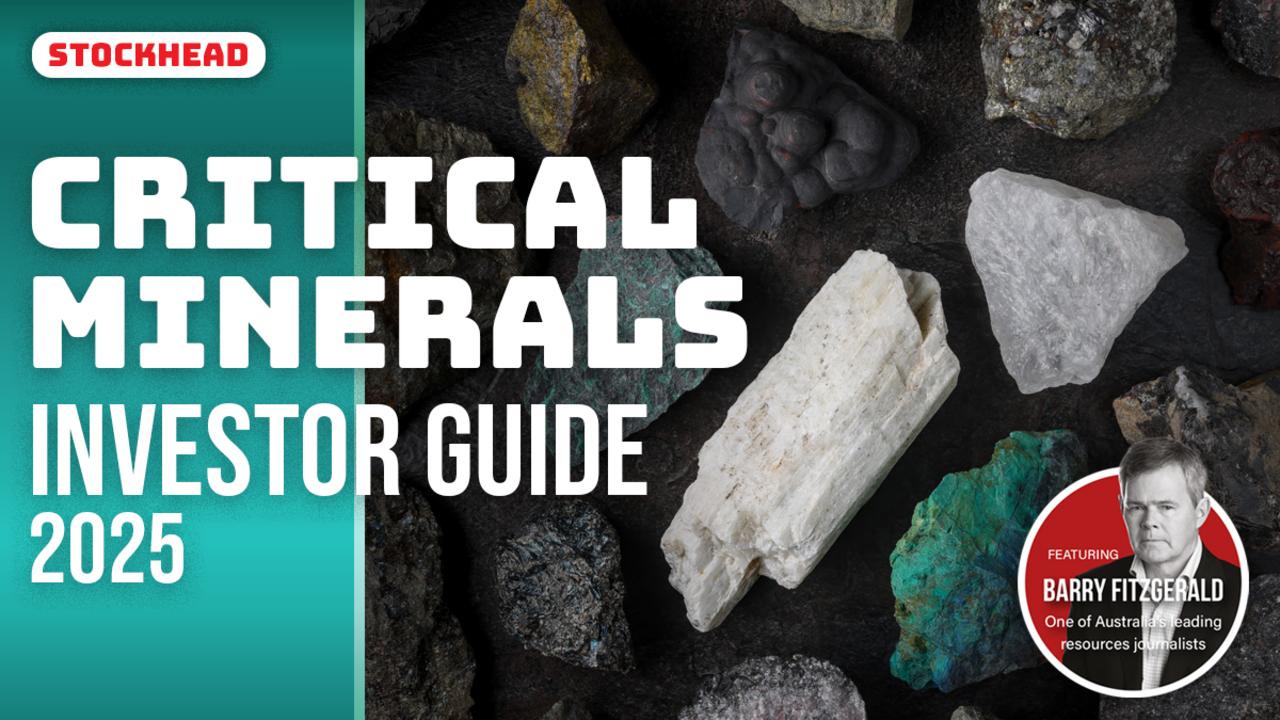A live cat bounce: Why Canaccord’s Reg Spencer is positive on lithium’s revival
As prices begin to claw back ground after a savage plummet, Canaccord Genuity lithium guru Reg Spencer sees blue skies ahead and names some hot prospects.

Canaccord Genuity lithium expert Reg Spencer says the recovery in lithium prices is more than a ‘dead cat bounce’, with the corporate advisory firm and brokerage “constructive” on the battery metal over the next 18 months.
With chemical prices tanking in China last year, falling from more than $US80,000/t to about $US13,000/t, the spodumene concentrate produced by Aussie miners took a dive as well, with benchmark prices sliding from more than $US8000/t to as low as $US850/t in January this year.
For the latest resources news, sign up here for free Stockhead daily newsletters
But they’ve since recovered to $US1185/t, with Fastmarkets prices averaging $US1224/t so far in May.
So, is the rebound destined to falter, or are we coming into a new stage of the cycle for the electric vehicle battery ingredient?
“We are not of the view that this is a dead cat bounce,” Spencer told Stockhead this week.
“Our supply and demand modelling suggests a market that’s in balance in calendar ‘24 and calendar ‘25. We model a very small surplus.”
Canaccord’s models include a provision for some low-grade, high-cost Chinese lepidolite and Zimbabwean hard rock projects to ramp up production.
Those mines were the Schrodinger’s cats of the lithium market, seemingly simultaneously alive and dead.
But Spencer said the outcome which had these mines performing to spec was already provided for in CG’s model.
“If pricing stays here, there is the possibility that this supply remains offline or at least the supply that has been closed remains offline, as is the case with some Chinese lepidolite operations,” Spencer said.
“But then secondly, some of this African spodumene supply, it’s not clear yet as to how those assets are ramping up and performing.
“Embedded in our supply demand modelling, we assume that those operations ramp up to full capacity during the course of this year.
“There’s never been a lithium asset outside of Sigma (the Grota do Cirilo mine in Brazil) that has ever ramped up to nameplate without any troubles or commissioning issues.
“So that market balance that I referred to for ‘24 and ‘25 is a fine balance.
“If there is any disappointment in any major supply source through the course in the year or now, we could very much find ourselves back to market deficit conditions, which would then support a higher spodumene price as we move into the second half and in 2025.”
Revival mechanics
Spencer noted the closure and curbing of operating lithium mines showed the price had fallen below incentive pricing and levels needed to keep marginal producers operating earlier this year.
That suggests the (around) 30 per cent revival in lithium prices was a reaction to market fundamentals, rather than speculation on hitting the bottom of the cycle.
“We also saw other classic bottom of the cycle signals when you saw some high cost operations like Core Lithium (ASX:CXO) move on to care and maintenance and new projects were deferred,” Spencer said.
MORE FROM STOCKHEAD: Copper froths, nickel bubbles | Brazilian Critical Minerals’ samba magic | Fundies line pockets with copper
“So we think the set up is not that bad. Certainly not as bad as what some of the equity valuations might imply.”
CG’s latest pricing forecasts anticipate SC6 trading between $US1250-1500/t over the rest of the year, implying chemicals pricing of between $US15,000-20,000/t, Spencer said.
“I suppose $US1250 is a long way away from $US6000, where it peaked in late 2022.
“But it’s important to remember that those prices were never sustainable in the first place.
“And if you have a look at historical prices for spodumene concentrate, the price was $US400-600/t for a very, very long time.
“So in the context of history, $US1500/t or $US1250/t is actually not too bad and any decent producer should be able to make decent margins at current prices.”
Limited read-through
We’re a few weeks removed from April’s March quarter reporting season, the last major market-moving event for most ASX lithium stocks.
Spencer said there was limited read-through from the reports for the year ahead and current quarter given prices had bottomed out in January and February before sharply recovering.
China’s Lunar New Year celebrations, a virtual shutdown period for the world’s second-largest economy and centre of the EV universe, made it hard to assess demand trends.
“I think the June quarter will be far more instructive,” Spencer said.
“You’re probably going to see better financial performance from the lithium producers.
“And now that we’re past Chinese New Year holidays and EV sales seem to be tracking reasonably well, it might be a bit more of a guide as to what we might expect through the back half of the year.”
Canaccord’s hot pick
It might be the most shorted company in the ASX 200, but Spencer says Pilbara Minerals (ASX:PLS) remains the standout lithium producer in the Aussie market.
“They’re the largest pure play, the margins are solid, they’ve got organic growth over the next two years as they push forward with their P1000 project to get to a million tonnes per annum spodumene and they’re well funded,” he said.
Pilbara is diversifying away from just mining and shipping spodumene to Asia, with a small stake in a POSCO lithium hydroxide plant in South Korea and a midstream demo project onsite at the Pilgangoora mine near Port Hedland in partnership with Calix (ASX:CXL).
A feasibility study will also be completed early next year on a downstream refinery which, if successful, would be co-owned by PLS and Chinese lithium giant Ganfeng.
Higher pricing would be PLS’s friend in more way than one.
“That company has a 22 per cent short position on it at the moment, so if we do see continued strengthening in pricing, there is the possibility of a bit of a short squeeze, which would be obviously beneficial for the stock,” Spencer noted.
“So on a fundamental basis, Pilbara is still our preferred large cap exposure in the sector at this point.”
Visit Stockhead, where ASX small caps are big deals
Further down the line
We’re not at incentive pricing yet for larger new lithium projects.
Heading down the market to developers, CG likes those explorers who have pathways to production that could avoid the billion-dollar-plus capex of mega projects such as Liontown Resources’ (ASX:LTR) Kathleen Valley in WA or Sayona Mining’s (ASX:SYA) Moblan in Quebec.
High up on the list is Latin Resources (ASX:LRS), the next cab off the rank in Brazil’s Minas Gerais region after the success of TSX listed Sigma Lithium’s Grota do Cirilo.
Its Salinas project, anchored by the Colina deposit, contains 70.3Mt at 1.27 per cent Li2O.
“Sigma has shown what is possible in Brazil, their stage one project cost well under $US200 million to build, it does 250,000tpa of spodumene concentrate, and cash costs in spite of their high strip ratio are $US450-500/t,” Spencer said.
“So they’re still able to operate even in a low pricing environment and they’ve shown that the capital intensity for projects like that are very, very low.
“So with Latin located literally just up the road we think that they should be able to follow in Sigma’s footsteps.
“Latin will have a resource upgrade out in the next month or so, that will feed into a DFS (definitive feasibility study), noting that the resource is much larger than the one on which the PEA (preliminary economic assessment) that they completed last year was based, we think that could support a much larger project or a much higher production run rate.”
The PEA projected developing the first phase at Salinas would cost $US253 million ($382 million), with another $US55 million ($83 million) required to ramp up to full scale production of 405,000tpa of 5.5 per cent Li2O spod and 123,000tpa of lower grade 3 per cent Li2O spod, at operating all-in sustaining costs of $US536/t.
Also interesting CG is James Bay play Winsome Resources (ASX:WR1), which last month announced a plan to repurpose a mothballed diamond processing plant in a deal that could cut its capital requirements at the Adina project in Quebec.
“They’ve defined a resource in Quebec on their Adina project of 70 million times. There are certainly opportunities for that to continue to get larger as they undertake more drilling,” Spencer said.
“But what is really interesting about that stock is that they recently executed an option over the Renard diamond mine, which is located about 60km south of Adina.
“A diamond plant will typically include a dense media separation circuit, as does Renard, and DMS is a well known processing route for spodumene concentrates.
“So that option allows Winsome to acquire that mine and all the infrastructure for $52 million in cash or stock.
“They have to build a road to site and there will be some modifications required to that mine, all up they could be developing a project for hundreds of millions of dollars less than what a greenfield site would otherwise cost.”
This content first appeared on stockhead.com.au
At Stockhead we tell it like it is. While Latin Resources was a Stockhead advertiser at the time of writing, it did not sponsor this article.
The views, information, or opinions expressed in the interviews in this article are solely those of the interviewees and do not represent the views of Stockhead. Stockhead does not provide, endorse or otherwise assume responsibility for any financial product advice contained in this article.
SUBSCRIBE
Get the latest Stockhead news delivered free to your inbox. Click here


